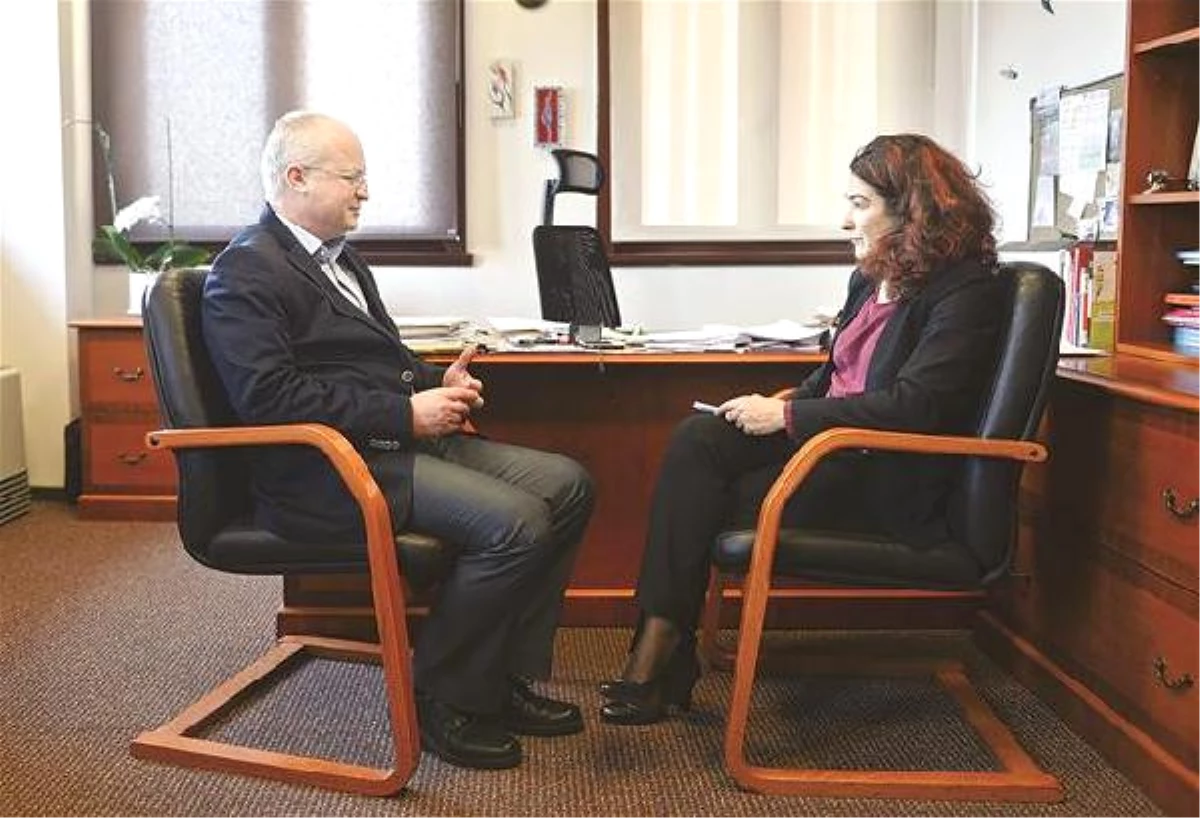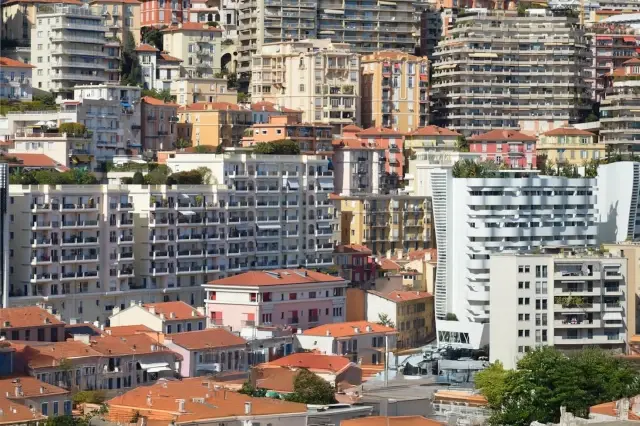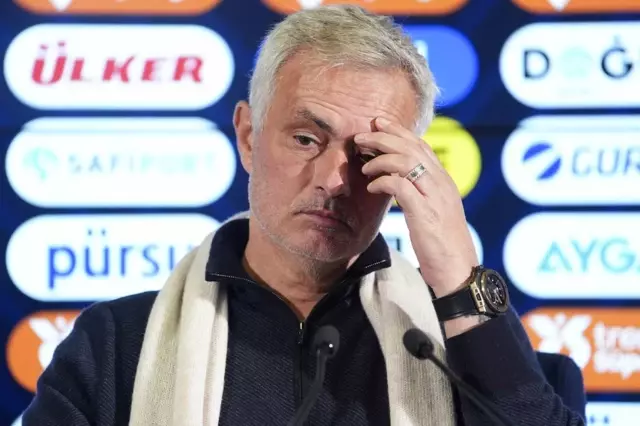Turkish Media's Partisan Coverage Alarming For Democracy

The polarization in the press as well as biased coverage of news has reached alarming levels for Turkish democracy, according to a scholar who recently released a survey on Internet and media freedoms.
The polarization in the press as well as biased coverage of news has reached alarming levels for Turkish democracy, according to a scholar who recently released a survey on Internet and media freedoms.
The results of the survey points to the fact that polarization reflects itself on the perception of censorship in the media and the Internet, said Professor Ali Çarkoğlu from Koç University.
"The opposition in Turkey is pulling the country toward a more liberal way and the incumbent and conservative parties are pulling Turkey toward the other way, toward perhaps a more Putinesque path" he recently told the Hürriyet Daily News.
Tell us your observations based on the findings about freedoms in the press and the Internet.
It's a very polarized media market – so polarized that certain party voters read only a handful of newspapers. And among the readers of certain newspapers, you would only find a few of the expected parties. And we don't have a mainstream media outlet. Not anymore.
The media outlets are increasingly more polarized and they appeal to the margins or to specific groups of interest and political preference.
How is it different from the rest of the world? After all, a conservative in Europe prefers to read a daily known to be close to conservatives.
It's very different. In the Turkish case, not only do we find this partisan concentration, but also people tell us that media outlets are biased in their coverage. Now, I would be surprised if a Le Monde reader would find Le Figaro completely biased.
On basic journalistic principles, I think there would be an agreement in a well-functioning democracy that when something is black, it won't be portrayed as white and vice versa. Whereas in the Turkish case, there is no single truth about which all media and their readers would agree on.
This is perhaps expected but the fact that this is being emphasized over and over again at such high levels of perception of bias is, I think, disturbing, and I was surprised with the findings.
All of the evaluations are driven by partisan commitments, and unfortunately I have data also about the content on the coverage of the news. I've coded campaign periods, and how positively or negatively political leaders and parties are covered by the national newspapers and TV.
There, you clearly see that one newspaper emphasizes one party and de-emphasizes the others. The amount of time and space allocated to parties in a positive or negative way varies in accordance to a commitment to a party or an opposition to a party, which is disturbing.
There is a great deal of incumbency advantage; the space allocated to the ruling party is disproportionately higher than the space allocated to any or the sum of the opposition parties. You hear this from the opposition parties as well; they say, you know we have policies, we talk about stuff, but we are not being covered. I think there is truth to that.
We have polarization, the content is really biased, and it doesn't reflect well on Turkish democracy at large. You can actually pull this all the way to a claim that there is no real debate in Turkey; people are just making statements and arguments, but they are not really listening to one another. They are not really talking to one another. There is no conversation.
How does polarization in the media reflect itself at election times?
We observed in the 2011 general elections that during the course of the campaign, especially two months prior to the elections, the polarization in the media coverage all of a sudden got larger and larger.
If you do a systematic content analysis over time, you see the pattern is very clear. The pattern that is the difference between the positive coverage of the ruling party and the opposition gets larger. And I expect it will be repeated in this campaign again.
Tell us about your findings on the views about censorship.
We live in an increasingly conservative country. We have had more systematic data about conservatism since the 1990s. So I am not particularly surprised that censorship has some support among the Turkish public, because censorship goes hand in hand with conservative attitudes.
However, what I'm struck by again is the divide between again the ruling party and the opposition parties. If everybody were to be homogenously highly supportive or highly against censorship, that would be a normal finding. But it looks like if you are a [supporter of the ruling party], then you are significantly more optimistic about the nature of censorship in the country; you tend to evaluate that censorship is not really present.
When you are a supporter of the Nationalist Movement Party (MHP), Republican People's Party (CHP) or Peoples' Democratic Party (HDP), you say it's significantly high. They should be looking at the same phenomenon; how can they perceive the same phenomenon so significantly differently? But they do. It looks like this is a reflection of the polarization in the media as well.
So the sense of being oppressed, being alienated, being under the stress of government regulations and watch is significant among opposition party supporters.
They tend to think access to enough and quality information is significantly lowered by the policies followed by the government. So that sense of mistrust for the media due to government oppression is almost alarming I think because this sense of mistrust and pressure by the government leads people to alternative news sources – one being Internet use, obviously, and the other is simply gossip, street gossip.
This is the danger that Turkey will eventually find itself in. No one will believe in the media coverage, or they will see the coverage as biased and they will buy the alternative story from their preferred media outlet, and we most likely will not agree on any significant agenda item. At a time when we're about to launch a new constitution-writing process, a consensus-building mechanism is all we need. In this country, with these kinds of media evaluations, there can be no consensus building.
Can we say we are becoming a paranoid society?
Calling Turkish society paranoid would be a very big claim. But there is a fact that people don't trust their information source. And that's why our research also focuses not only on the more traditional media outlets, but also on the Internet and especially the way you can avoid restrictions imposed on the Internet.
We find significant groups of people are using those technologies to bypass restrictions on Internet users. Despite the fact that there have been limitations on Twitter and Facebook use over and over repeatedly in the past couple of years, people perceive the Internet as a freer setting than other traditional media outlets where censorship is prevalent.
Our colleague Erik Nisbet brought Russian data to our attention. Russia is a leader of censorship for restrictions on Internet users. And Turkey appears to be in much better condition compared to Russia, when you look into support for censorship in the different kinds of information or different kinds of coverage. But when compared to Western, developed democracies, Turkish positions appear too much in favor of censorship demands. And even there, you still find partisan alignment.
Conservative, right-wing parties are more accepting of censorship on significant issues than more left-leaning party supporters. So we tend to think that there is a fork in a sense that Turkey needs to make up its mind about: we can choose to go along the way that Russia has chosen, toward more censorship, toward more oppressive regulations over the media as well as the Internet, or it could go the other way toward a more liberal regulatory environment.
The opposition in Turkey is pulling the country toward a more liberal way and the incumbent and conservative parties are pulling Turkey toward the other way, toward perhaps a more Putinesque path.
We still have a vibrant opposition that allows Turkey to progress in a more liberal manner compared to Russia, but how long can these groups survive is the key issue here. So whatever happens in the upcoming elections, its aftermath is important for the development of the country at what is essentially a fork in the path.
(PHOTO) - Istanbul









